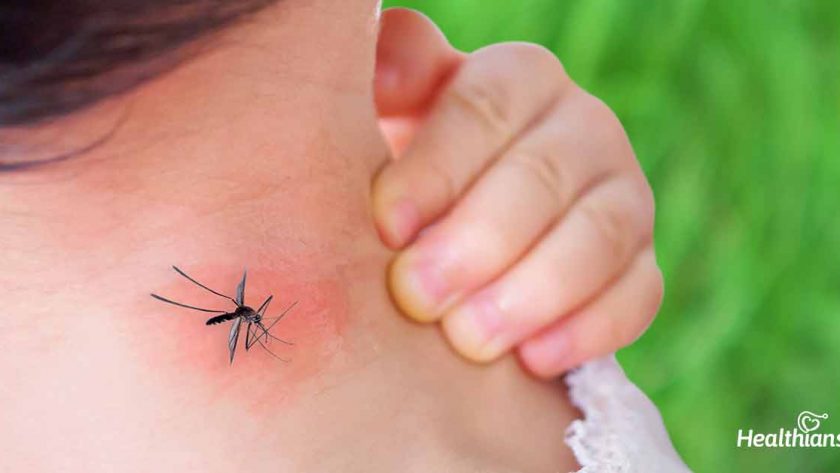[ad_1]
Contributed by: Rachana Arya
Introduction
Several cities in India have recently registered a sharp surge in dengue cases due to rainwater accumulation. According to health officials, the number of reported cases has been steadily climbing, with dengue cases almost doubling this year compared to the last. As per the latest news reports, hospitals are flooded with patients, and many are fighting for their lives.
There is a truckload of myths attached to dengue fever, which can sometimes worsen the condition than it already is. So, if you don’t want to get stuck in the midst of all the dengue myths, just read on, as we bust some common dengue myths to make way for facts regarding the disease.
Myth #1: Dengue can be transmitted by every mosquito bite
Fact:
Foremost, this dengue myth needs to be busted that every mosquito bite causes dengue. It is not true at all! Dengue is a mosquito-borne viral infection that can be transmitted only through female Aedes aegypti mosquitoes. In fact, these mosquitos can only transmit the sickness if they are affected themselves. So there’s no need to be alarmed every time a mosquito bites you.
Myth #2: Dengue fever is harmless
Fact:
There are both mild as well as fatal cases of dengue. You may experience mild signs of dengue, such as aching muscle and joints, high fever, intense headache, pain behind the eyes, etc. If proper treatment is not taken, these symptoms can gradually worsen and lead to complications like a significant drop in blood platelets, disorientation, internal bleeding, sensitive stomach, breathing difficulty, liver failure, confusion, etc. These severe symptoms may even lead to the death of the patient. As there is no vaccine available, it is important to prevent the condition as much as possible. Should you or your loved ones display any signs of severe dengue, it is advised to get medical help as soon as possible.
Myth #3: A low platelets count means you have dengue
Fact:
While having a low platelet count is one of the significant symptoms of dengue fever, that doesn’t mean that this condition always necessarily means dengue. Owing to the monsoon and stagnation of water, there are overlapping vector-borne viruses that manifest dengue-like symptoms. Furthermore, several kinds of viral fevers, infections, medications, autoimmune diseases, and other causes like surgery, pregnancy, etc. can represent themselves in the same fashion with a low platelet count.
Myth #4: Dengue fever can be cured by using papaya leaf
Fact:
If you’ve ever had dengue fever, you’ve probably heard the adage that papaya leaf juice can manage the symptoms of the condition. Well, there is no scientific evidence to support the notion that papaya leaf juice can lead to a significant gain in platelet count in patients suffering from dengue fever. However, there is no specific treatment or protection available for this lethal virus. As a result, the best strategy to deal with this sickness is to take adequate preventive measures and make sure that the surroundings are not prone to the breeding of Aedes mosquitoes.
Myth #5: Being affected by dengue once, makes you immune to it for the rest of your life
Fact:
This is perhaps the most prevalent and dangerous misconception surrounding dengue fever. Unfortunately, a person can contract dengue fever four times in his/her lifetime. Dengue fever is divided into four virus variants. As a result, even if you acquire dengue and recover, your immunity is limited to that particular serotype for the rest of your life and not the other three as well. Furthermore, people who are infected a second time may have worse symptoms than they did the first time and it may be more fatal for you. Thus, you can’t let your guard down even if you have once beaten the dengue fever.
Myth #6: Only children and older individuals can get dengue fever
Fact:
If you have heard this dengue myth, immediately break it because mosquito bite is completely unbiased and has no relation to the age of a person. Your chance of contracting dengue fever is not determined by factors such as your age, gender, or socioeconomic status. It has the potential to affect anyone. Living in tropical areas and having already contracted dengue fever are two factors that significantly enhance your chance of contracting the disease.
Myth #7: Dengue fever is contagious
Fact:
It is incorrect to believe that dengue is transmissible from person to person. An infected person cannot spread the virus through human-to-human physical touch. The Aedes aegypti mosquito is the vector for dengue fever.
In conclusion
It’s difficult to identify because the symptoms are similar to those of other mosquito-borne infections including malaria and chikungunya. So it’s crucial to get a blood test. The Complete Blood Count (CBC) test that determines white blood cell, red blood cell, and platelet count is recommended. Only if the doctor advises, then it is necessary to take the dengue antibody IgM test.
Book The Dengue Screening Test Today!
This post has already been read 13 times!
[ad_2]
Source link




